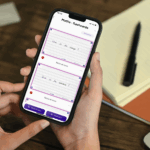
The day before your assessment: how do you finalise your revision?
The day before your assessment: how do you finalise your revision?
Finalising your revision
Your assessment is fast approaching and you're wondering how to make the most of the few hours you have left? Then you've come to the right place! In this article, we explain how to finalise your revision!
If you’ve got this far, it means that your assessment is fast approaching. You know that tomorrow you’ll be sitting in front of your exam paper, with only your pen and your brainpower to help you, and you’re wondering how you can make the most of the time you have left. How can you make the most of the precious hours you have left? Let’s not waste any time. We’ll show you how to complete your revision!
Defining your priorities
While it’s essential to get some rest the day before, there’s nothing to stop you making the most of the hours you’ve got left by delving into your course one last time. But be careful, not just any old way! You need to define your priorities, and Pareto’s law is an effective way of doing that.
This method, developed in the 20the century by the economist Vilfredo Pareto, helps you to identify your priorities and optimise your revision time. According to Pareto’s law, 20% of your course can enable you to assimilate 80% of the concepts you need to know for your assessment. Great, isn’t it?
For a history exam, 20% of important information would represent:
- Dates and major events.
- Iconic figures.
- the main reasons for the conflict.
To put it plainly, these items should be given top priority!
Once you’ve focussed on the basics, you can fine-tune your revision. Doing it in this order will reduce your stress because you know where you’re going. Using the same example, this means that you’re interested in:
- secondary events.
- the indirect consequences of the conflict.
- the analysis that has been carried out on the subject.
And because good news never comes alone (the positive attitude), the scribzee app has THE feature you need: revision progress statuses!
After scanning your Oxford revision notes on scribzee, you can:
- indicate your level of knowledge,
- access the dashboard for an overview of your revisions.
That way, you know exactly what you’ve got to work with! Pretty handy, isn’t it?
Example: looking at your summary, you realise that you’ve revised all your flashcards. However, you realise that you’ve only gone through 20% of your history notes, even though they’re essential. Conclusion: revising them becomes your priority!
Make revision easier with flashcards
To finalise your revision, you need to go over your lesson again (yes, but effectively!). That’s where flashcards come in! They come in all sizes and colours, which is great for getting your visual memory working.
Flashcards have many advantages:
- they present your course in a concise, structured way,
- they are easy to transport,
- they encourage active learning,
- They can be customised to suit your needs and tastes,
- they allow you to practise spaced repetition.
Active learning? What does active learning mean? By using flashcards, you are actively involved in the learning process. Instead of doing what we call “passive reading” of your lesson, you think about answering the questions on the flashcards.
You’re also taking advantage of the Leitner method, a learning technique based on spaced repetition, without realising it. In short, this technique allows you to spend more time on the concepts you know least about.
Example: the back of your flashcard says “Date of the coronation of Elisabeth I”. When you read the front, you see that you’ve answered this incorrectly. In this case, make two packs of flashcards: one for the cards you know (right), the other for those you need to learn (left). As soon as you’ve gone through all the flashcards, go back to the pack on the left until you’ve mastered it.
Test your knowledge before the exam
As soon as you’ve finished with the flashcards, you can put your memory to the test by taking quizzes or letting someone you know quiz you. There’s nothing more effective than practising before an assessment, and that’s why quizzes are perfect.
- They test your knowledge and are fun,
- If they are printable or online, they can be done over and over again,
- Quizzes can include a variety of question formats.
Using different types of questions will make your revision experience more stimulating and interesting. Multiple choice, true or false… you’re spoilt for choice!
To create your ideal quiz, you can:
- Only use paper,
- Use an online quiz creator like Canva,
- Combine Oxford flashcards with scribzee.
At the same time, you can go over the exercises you’ve done in class. If your assessment is in a science subject (maths, physics-chemistry, etc.), this practice will be useful. If your teacher has given you certain exercises to do, it’s not by chance. He was trying to teach you logic!
The idea is the same for other subjects. Adapt your practice to the course you’re revising. If it’s a literary subject like French or philosophy, for example, you could revise the essay method and do a quiz on quotations.
Boosting your memory
To give your memory a boost, you first need to know what it is. Adapting your revision method to your type of memory will enable you to assimilate information more quickly. As a reminder, there are three types of memory:
- visual memory, is the ability to immediately recall what the eye has seen,
- auditory memory, which is based on hearing,
- kinaesthetic memory, which uses sensations and movement to retain information.
To boost visual memory, we recommend the use of charts, drawings, mind maps and colours. In short, anything that catches the eye and stimulates the brain!
As far as auditory memory is concerned, you can recite your lesson aloud, record yourself listening to it or practise with your friends.
For kinaesthetic memory, try to draw on your own experience to link information to something you are familiar with. Movement also plays an important role. You can chew a piece of chewing gum, touch an object, and so on.
And if you want to combine the two methods, outdoor revision is an option. For example, you could take a walk in the park (kinaesthetic memory) and revise your coloured flashcards (visual memory) by reading them and answering aloud (auditory memory).
Once you’ve finalised your revisions, all that’s left to do is get started. Trust yourself and don’t be afraid, because if you’re prepared, everything will go smoothly!




Your email address will not be published.